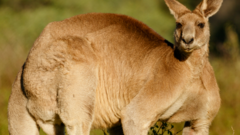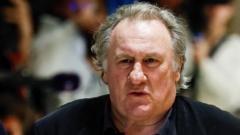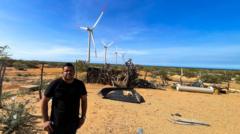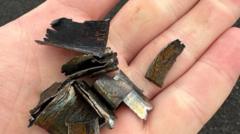Kathleen Folbigg, once labeled "Australia's worst mother," faces outrage over a meager A$2m compensation offer after being wrongfully imprisoned for the deaths of her four children, now believed to be due to genetic conditions.
Kathleen Folbigg's Inadequate Compensation Sparks Outrage After Wrongful Imprisonment
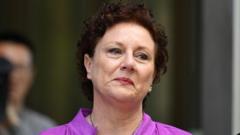
Kathleen Folbigg's Inadequate Compensation Sparks Outrage After Wrongful Imprisonment
Kathleen Folbigg, wrongfully jailed for 20 years, deemed compensation offer of A$2m as insufficient amidst calls for justice.
In an unsettling development, Kathleen Folbigg, who spent two decades wrongfully incarcerated and was once condemned as "Australia's worst mother," has been offered a mere A$2 million (approximately £975,580 or $1.3 million) in compensation for her conviction linked to the deaths of her four infants. Legal experts and advocates are expressing alarm, terming the sum "profoundly unfair and unjust" given the details surrounding her case and the long years she lost behind bars.
Folbigg was convicted in 2003 for the deaths of Caleb, Patrick, Sarah, and Laura, who died unexpectedly between 1989 and 1999 at ages ranging from 19 days to 18 months. Prosecutors relied on circumstantial evidence, including her personal diaries, to construct a narrative of an unfit mother who had smothered her children. After years of legal battles and emerging scientific evidence suggesting her children might have died from rare genetic conditions, Folbigg was finally freed in 2023 following a judicial review.
Her attorney, Rhanee Rego, has voiced strong objections to the government's compensation offer, describing it as "a moral affront" and highlighting the systemic failures that led to her wrongful conviction. "The sum offered is woefully inadequate and ethically indefensible," she stated, emphasizing that Folbigg has endured unimaginable suffering during her incarceration. The New South Wales Attorney General, Michael Daley, released a statement defending the decision, citing thorough consideration into Folbigg's compensation application. However, he declined to discuss details per her request.
Legal analysts predicted that Folbigg could potentially receive one of the highest compensations in Australian history, with estimates ranging from $10 million to $20 million. Forensic criminologist Xanthe Mallett and Professor Gary Edmond from the University of NSW also underscored the anticipated need for a larger compensation aligned with the severity of Folbigg's wrongful conviction.
The distressing parallels between Folbigg's case and that of Lindy Chamberlain, who received $1.7 million after being exonerated for her daughter's murder in 1994, underscore an unsettling trend in how the legal system compensates wrongful convictions. As calls for justice grow louder, the small compensation package leaves many questioning the values and priorities of a justice system that once so grievously failed Folbigg.
Folbigg was convicted in 2003 for the deaths of Caleb, Patrick, Sarah, and Laura, who died unexpectedly between 1989 and 1999 at ages ranging from 19 days to 18 months. Prosecutors relied on circumstantial evidence, including her personal diaries, to construct a narrative of an unfit mother who had smothered her children. After years of legal battles and emerging scientific evidence suggesting her children might have died from rare genetic conditions, Folbigg was finally freed in 2023 following a judicial review.
Her attorney, Rhanee Rego, has voiced strong objections to the government's compensation offer, describing it as "a moral affront" and highlighting the systemic failures that led to her wrongful conviction. "The sum offered is woefully inadequate and ethically indefensible," she stated, emphasizing that Folbigg has endured unimaginable suffering during her incarceration. The New South Wales Attorney General, Michael Daley, released a statement defending the decision, citing thorough consideration into Folbigg's compensation application. However, he declined to discuss details per her request.
Legal analysts predicted that Folbigg could potentially receive one of the highest compensations in Australian history, with estimates ranging from $10 million to $20 million. Forensic criminologist Xanthe Mallett and Professor Gary Edmond from the University of NSW also underscored the anticipated need for a larger compensation aligned with the severity of Folbigg's wrongful conviction.
The distressing parallels between Folbigg's case and that of Lindy Chamberlain, who received $1.7 million after being exonerated for her daughter's murder in 1994, underscore an unsettling trend in how the legal system compensates wrongful convictions. As calls for justice grow louder, the small compensation package leaves many questioning the values and priorities of a justice system that once so grievously failed Folbigg.










